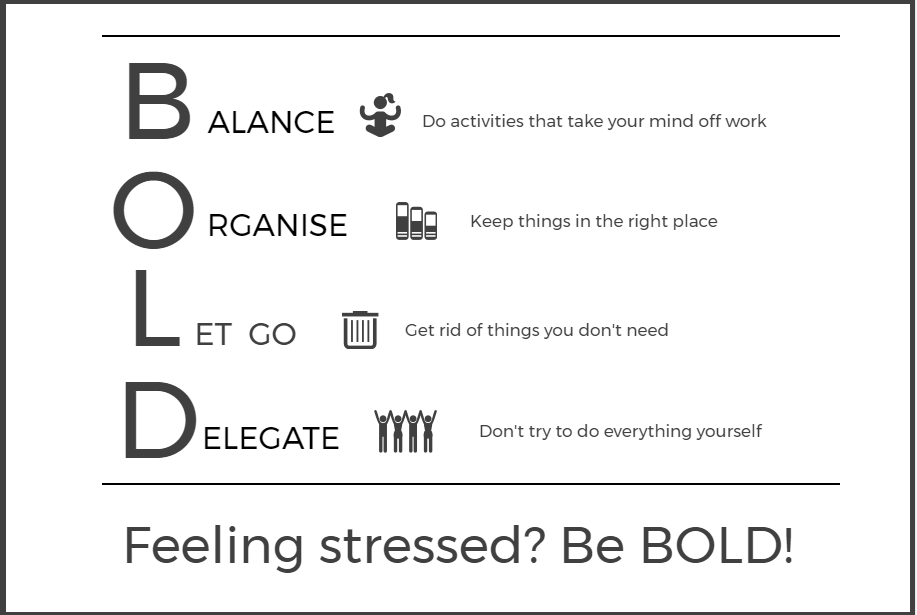- Anna Honing
- June 19th, 2017
In a letter to a colleague, nineteenth-century American philosopher and psychologist William James wrote that ‘Nothing is so fatiguing as the eternal hanging on of an uncompleted task’.
Most of us will have experienced this fatigue – pushing a task back, telling ourselves we’ll do it later when we have more time. The trouble is, we haven’t really freed ourselves up to tackle other things because the task we’ve pushed aside is hanging over us like an oppressive thunder cloud. Procrastination only increases our level of stress and, as a consequence, our to-do list gets longer and our energy and motivation is weakened.
Avoiding this trap doesn’t mean working harder or for longer hours; this will only make you feel tired, irritable and less likely to cope. The real way to escape this vicious circle is to manage your time better. Learning the importance of good organisation, and working on improving your organisational skills, takes time and practice but is truly effective. If you are able to set goals and achieve them, whether at home or at work, you will have much more control over your life and more freedom to actually enjoy it.
Short on time? It’s nothing new
A quick search online reveals that there are roughly 230,000 entries relating to time management. Clearly, many of us are looking for advice on how best to cope with all the demands that work and life throw at us and, as William James shows, this is not just a modern problem!
However, modern life does seem to place more and more demands on us. Take emails, for example. It’s all too easy to fire them off without really thinking whether they are necessary. As a result, they can pile up in an inbox and become increasingly stressful to deal with, if they are dealt with at all. A huge inbox is a modern workplace phenomenon and requires good organisational skills to be managed successfully.
A few tips for the time-poor:
A key element of effective time management is the ability to prioritise. Getting into the habit of going through your emails every morning, dealing with the most important ones straight away and scheduling time to look at the less important ones, is a positive step in learning the art of good organisation.
Being willing to learn these skills is essential if you want to make a difference to how you manage your workload. Using weekly or monthly planners, for example, or regularly decluttering your workspace are techniques that really work and, after a while, you’ll be doing them without thinking, leaving you more time to think about the important jobs at hand.
Using the acronym BOLD can help too. ‘B’ is for ‘Balance’ – taking the stress out of life, perhaps exercising after a day at the office. ‘O’ stands for ‘Organise’ – keeping things in their allocated place and easily retrievable. ‘L’ is for ‘Letting things go’ – shredding old papers or storing them appropriately and ‘D’ is for ‘Delegate’ – not trying to do everything yourself.
Learn from the masters
Some people are spectacularly productive. Khaled Hosseini, who wrote the best-seller The Kite Runner, is also a successful doctor. The two Klitschko brothers are among the most successful boxers in boxing history, hold PhDs and speak multiple languages. While most of us will never reach these giddy heights, there is no doubt that achieving this kind of success is not only the result of talent and discipline but of great time management skills too.
If we take some time to learn the tools needed to become more organised, then we too can enjoy the pleasure of achieving more, living a more balanced life, and being proud of our own accomplishments.
Need some more tips on how to tackle time? Click the button below to take our online Time Management training course for FREE!


